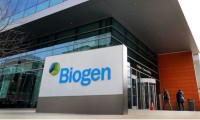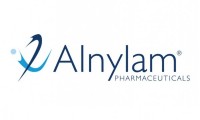-
Biogen Boosts Neuro Pipeline with $7.3B Reata Buy Amid Layoffs
- Source: drugdu
- 98
- August 1, 2023
-
Mirati’s Flagship KRAS Inhibitor Krazati Gets Rebuffed in Europe
- Source: drugdu
- 128
- July 25, 2023
-
ADC Therapeutics Pulls the Plug on Zynlonta Study After Partial FDA Hold
- Source: drugdu
- 112
- July 25, 2023
-
New ultra-flexible neural implant records single-neuron activity in deep-brain regions
- Source: drugdu
- 110
- July 22, 2023
-
EU Prepares for the Winter With Plans to Avoid an Antibiotic Shortage
- Source: drugdu
- 100
- July 20, 2023
-
Alnylam Presents Promising Results for RNAi Therapeutic in Alzheimer’s Disease at AAIC
- Source: drugdu
- 122
- July 20, 2023
-
Neumora Races Toward Phase III with New Driver in the Hot Seat
- Source: drugdu
- 114
- July 20, 2023
-
Bicycle Therapeutics Plans $200m Public Offering
- Source: drugdu
- 114
- July 18, 2023
-
EU Establishes €100m Funding Scheme for Projects Tackling Public Health Threats
- Source: drugdu
- 146
- July 18, 2023
-
Innovative Mixed Reality Training Platform to be Developed for Pharmaceutical Companies and Healthcare
- Source: drugdu
- 112
- July 18, 2023
your submission has already been received.
OK
Subscribe
Please enter a valid Email address!
Submit
The most relevant industry news & insight will be sent to you every two weeks.













